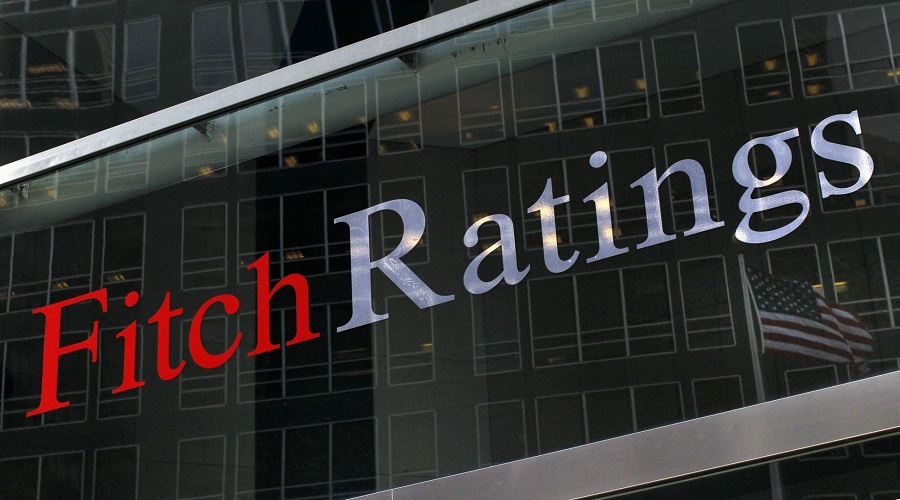KATHMANDU: Nepal’s acquisition of a sovereign credit rating by Fitch (BB-) marks a significant milestone in its financial and economic development. This analysis delves into the implications of the rating for international investors, the global community, and Nepal’s standing in the international financial ecosystem.
What is a Sovereign Credit Rating?
A sovereign credit rating is an evaluation of a country’s creditworthiness, reflecting its ability to repay debts. Assigned by credit rating agencies like Fitch, Standard & Poor’s, and Moody’s, these ratings play a crucial role in determining a country’s access to global financial markets. Ratings range from investment-grade to speculative, with each tier affecting borrowing costs, investor confidence, and economic strategies.
Nepal’s Current Rating: What Does It Indicate?
Although Fitch has yet to disclose the precise rating, the very act of assigning a rating is a step forward for Nepal. Sovereign ratings typically analyze factors such as:
Economic Stability: Nepal’s GDP growth, inflation rates, and fiscal policies.
Political Environment: Stability, governance quality, and risk of corruption.
Debt Sustainability: The country’s external debt and its repayment capacity.
Foreign Exchange Reserves: Capacity to handle trade deficits and currency fluctuations.
If Nepal receives an investment-grade rating, it signals a low risk of default, boosting investor confidence. A speculative rating might indicate higher risks but also higher potential returns, attracting risk-tolerant investors.
Implications for International Investors
1. Increased Transparency and Credibility
The rating enhances Nepal’s transparency and accountability, two critical factors for global investors. Fitch’s evaluation gives investors a standardized tool to assess Nepal’s financial health and economic prospects. This could open the door for substantial foreign direct investment (FDI) in sectors like hydropower, tourism, and infrastructure development.
2. Access to Global Capital Markets
With a sovereign credit rating, Nepal becomes eligible to issue sovereign bonds on the global market. These bonds allow the government to raise funds for infrastructure, healthcare, and education projects, reducing reliance on bilateral aid and concessional loans.
3. Impact on Borrowing Costs
A positive rating would lower Nepal’s borrowing costs, enabling the government to secure financing at competitive interest rates. Lower costs could lead to increased investment in priority areas, enhancing economic growth.
4. Sector-Specific Opportunities
Key industries like hydropower, tourism, and technology stand to benefit significantly. For example:
Hydropower Projects: A credit rating strengthens Nepal’s position as a destination for renewable energy investments, addressing both domestic needs and export potential.
Tourism Development: Improved investor confidence could lead to better infrastructure, enhancing Nepal’s appeal as a tourist destination.
Digital Economy: With rising investor interest, Nepal could attract technology-driven investments, promoting innovation and economic diversification.
Implications for the Global Community
Regional Stability and Economic Growth
Nepal’s economic stability is crucial for the South Asian region. A reliable credit rating fosters confidence among neighboring countries and trading partners, promoting regional cooperation in trade and energy.
Contributions to Sustainable Development
Global investors aligned with Environmental, Social, and Governance (ESG) principles may view Nepal’s rating as an opportunity to invest in sustainable development. Hydropower and green projects, for instance, align with global climate goals.
International Financial Institutions
Organizations like the World Bank, Asian Development Bank (ADB), and International Monetary Fund (IMF) use sovereign ratings to assess their lending strategies. A favorable rating could lead to more extensive support for Nepal’s development programs.
Challenges and Risks
While a sovereign credit rating is promising, Nepal faces several challenges that could impact investor sentiment:
1. Political Instability
Frequent changes in government and inconsistent policies deter long-term investments. Ensuring stable governance is critical.
2. Weak Infrastructure
Despite progress, Nepal’s infrastructure requires significant upgrades to compete with regional peers like India and Bangladesh. Reliable roads, airports, and energy supply chains are essential.
3. Limited Economic Diversification
Nepal remains heavily reliant on remittances and agriculture. Diversifying the economy is crucial to attract broader investment portfolios.
4. Global Economic Uncertainty
Global challenges, including inflation, geopolitical tensions, and trade imbalances, could affect Nepal’s attractiveness despite its credit rating.
The Road Ahead: Opportunities for Nepal
1. Policy Reforms
To leverage the credit rating, Nepal must focus on fiscal discipline, transparency, and corruption-free governance. Policies should prioritize:
Streamlining regulatory processes for foreign investors.
Strengthening anti-corruption measures to build trust.
Enhancing the ease of doing business.
2. Strategic Marketing to Global Investors
Nepal can now actively market itself to international investors, showcasing its strategic advantages:
Rich natural resources, particularly in renewable energy.
A young, dynamic labor force.
A unique cultural and geographical identity appealing to tourism and heritage industries.
3. Engagement with Multilateral Agencies
Collaborating with agencies like ADB and World Bank can amplify the benefits of the credit rating, providing financial backing and technical expertise for critical projects.
Nepal’s sovereign credit rating by Fitch is a landmark achievement, signaling the country’s readiness to engage with global financial markets. It offers international investors a clearer perspective on Nepal’s economic potential and strengthens its position in the global economic landscape.
However, to fully capitalize on this development, Nepal must address structural challenges, ensure political stability, and implement investor-friendly policies. With strategic planning and international collaboration, Nepal can transform this rating into a gateway for sustainable growth and global integration.
By focusing on infrastructure, governance, and economic diversification, Nepal has a unique opportunity to emerge as a promising destination for foreign investment. This rating is not just a number—it is a reflection of Nepal’s commitment to growth and a brighter economic future.

